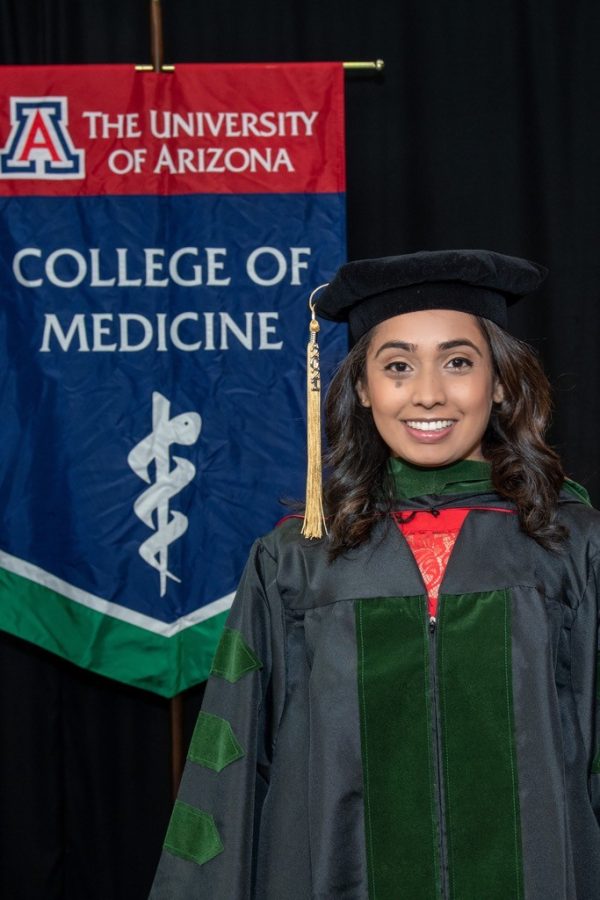The path to becoming a physician has seen unprecedented changes during the pandemic. For incoming medical students, the journey has been complicated by limited access to clinical encounters, uncertainty about testing and grades, as well as decreased exposure to other specialties. This uncertainty is compounded by the advent of virtual education in medical training.
Graduating medical students starting their residency — the in-depth specialty training following medical school — are not immune to these obstacles. Changes to licensing assessments and requirements, shortened clerkship rotations and virtual interviews have all altered the way students transition into their careers.
Riyasha Daulat, a graduating medical student from the University of Arizona College of Medicine — Tucson, reflected on these obstacles and how the pandemic affected her last year of medical school.
“The pandemic interrupted my clinical year, away rotations, global health track and schedule for electives. However, I was grateful that the administration and my mentors helped me adjust these deadlines accordingly,” Daulat said.
While medical schools across the nation have been mostly able to address rescheduling issues, missed deadlines and altered medical training, a recent report has shown that many medical students are concerned about delays in their graduation, their standardized exams and their clinical training.
This report also reveals that two in five medical students think COVID-19 interruptions and changes to their education will have at least a moderately negative effect on their ability to practice medicine as they launch their careers.
Naturally, this added stress has compounded feelings of burnout that are all too common in medical school and the medical profession. One study revealed that 76% of medical students felt burned out and unprepared. These feelings were more common among third and fourth-year medical students (88% and 77% respectively) compared to first-year students (68%).
To ease these concerns, Daulat has begun to focus on the positive by reflecting on how the pandemic has allowed her to grow personally and has given her the opportunity to spend more time with her family.
“The biggest benefit of the pandemic has been all the time that I can spend with my family while completing online work. I have also been able to take courses online that I otherwise would not have been able to take. These include inequalities in healthcare, integrative medicine and Spanish medical terminology,” Daulat said.
The pandemic has also given medical students greater insight on the execution of public health endeavors as well as glimpse into the world of health policy. Moreover, students have felt that they have a responsibility to help alleviate and support an overwhelmed medical system. Many have participated in COVID-19 hotline services, vaccination drives and telemedicine efforts. Others have volunteered their time to simply visit hospitalized patients who are alone and unable to have visitors as a result of social distancing efforts.
For Daulat, the pandemic was a call to service and an opportunity to make a difference for others.
“As medical students and future physicians, we have the responsibility to care for others. Working and volunteering during the pandemic helped remind me of why I chose this career,” Daulat said.
RELATED: UA College of Medicine to hold graduation early in light of COVID-19 pandemic
Despite pandemic-related hardships, many graduating medical students have expressed that the pandemic has reinforced their decisions to become physicians. Across the nation, students have been eager to contribute during the crisis, with some choosing to graduate early to enter the frontlines sooner.
“The pandemic only strengthened my desire to pursue internal medicine. Now, I want to train in a program with a strong inpatient medicine and critical care,” Daulat said. “I’m excited to soon be back in the hospital and learn. It will be a steep learning curve to start as an intern, but I’m looking forward to rising to the challenge.”
Follow Andres Diaz on Twitter









